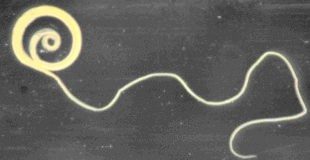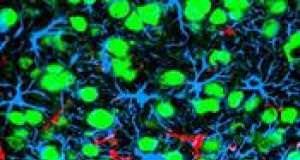Exercise Makes Middle-Aged People Smarter
High-intensity interval training makes middle-aged people not only healthier but smarter, showed a Montreal Heart Institute (MHI) study led by Dr. Anil Nigam of the MHI and University of Montreal, in collaboration with the Montreal Geriatric University Institute.
Can Magnesium Magnify Brain Power?
A magnesium supplement thought to improve brain functioning gets a small clinical trial.
Common Medications Shown to Impair Memory, Cognitive Performance in Elderly
Are you elderly and having memory or concentration problems? They might be caused by common medications used to treat insomnia, anxiety, itching or allergies,...
Can Worms Alleviate Autism?
A growing body of evidence suggests that in some patients, increased inflammation contributes to autistic behaviors. Now, a Phase I clinical trial is under way to measure the effects of infecting autistic patients with a non-pathogenic parasitic worm. Scientists at Montefiore Medical Center at the Albert Einstein College of Medicine in New York and biotech company Coronado Biosciences will test the hypothesis that treating these patients with Trichuris suis, a non-pathogenic parasitic pig whipworm, will dampen their immune responses and ameliorate repetitive and irritable behaviors.
Silent Stroke Can Cause Parkinson’s Disease
Scientists at The University of Manchester have for the first time identified why a patient who appears outwardly healthy may develop Parkinson's disease.
Whilst conditions such as a severe stroke have been linked to the disease, for many sufferers the tremors and other symptoms of Parkinson's disease can appear to come out of the blue. Researchers at the university's Faculty of Life Sciences have now discovered that a small stroke, also known as a silent stroke, can cause Parkinson's disease. Their findings have been published in the journal Brain, Behavior, and Immunity.
Even The Smallest Stroke Can Damage Brain Tissue And Impair Cognitive...
Blocking a single tiny blood vessel in the brain can harm neural tissue and even alter behavior, a new study from the University of California, San Diego has shown. But these consequences can be mitigated by a drug already in use, suggesting treatment that could slow the progress of dementia associated with cumulative damage to miniscule blood vessels that feed brain cells.
The team reports their results in the Dec. 16 advance online edition of Nature Neuroscience.
Brain Damage Triggered By Mini-Strokes Detailed
A new study appearing December 12 in the Journal of Neuroscience details for the first time how "mini-strokes" cause prolonged periods of brain damage and result in cognitive impairment. These strokes, which are often imperceptible, are common in older adults and are believed to contribute to dementia.
Chewing Gum Helps You Concentrate for Longer, Study Suggests
Chewing gum can help you stay focused for longer on tasks that require continuous monitoring. This is the finding of new research by Kate Morgan and colleagues from Cardiff University due to be published in the British Journal of Psychology today, 8 March.
Chewing Ability Linked to Reduced Dementia Risk
Can you bite into an apple? If so, you are more likely to maintain mental abilities, according to new research from Karolinska Institutet in Sweden.
The population is aging, and the older we become the more likely it is that we risk deterioration of our cognitive functions, such as memory, decision-making and problem solving. Research indicates several possible contributors to these changes, with several studies demonstrating an association between not having teeth and loss of cognitive function and a higher risk of dementia.
Job Burnout Can Severely Compromise Heart Health
Americans work longer hours, take fewer vacation days, and retire later than employees in other industrialized countries around the globe. With such demanding careers, it's no surprise that many experience job burnout -- physical, cognitive, and emotional exhaustion that results from stress at work. Researchers have found that burnout is also associated with obesity, insomnia, and anxiety.
Dementia Costs Top Those For Heart Disease Or Cancer, Study Finds
The monetary cost of dementia in the United States ranges from $157 billion to $215 billion annually, making the disease more costly to the nation than either heart disease or cancer, according to a new RAND Corporation study. The greatest economic cost of dementia is associated with providing institutional and home-based long-term care rather than medical services, according to the findings published in the April 4 edition of the New England Journal of Medicine.
Huperzine-A
Natural Club Moss Extract Shows Promise for Treating Alzheimer’s, Enhancing Memory and Alertness
By Jim English
Alzheimer’s Disease (AD) is a progressive degenerative disease that most...

















